The Monday Evening Wire. Just a Step Behind.
Episode 56, "The Dickensian Aspect"
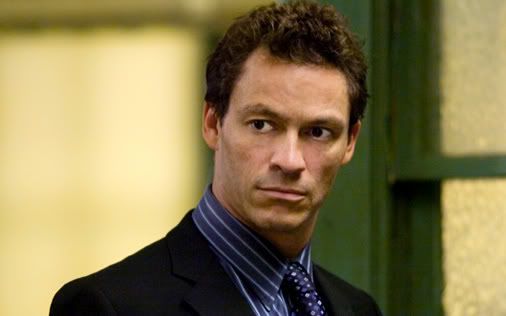
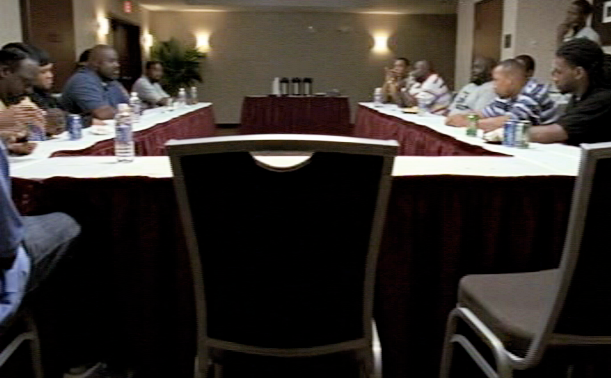
The first half of this season effectively made me not only not care, but not even want to watch what goes down in "the hall." But the timing of this series is always so spectacular, what with Super Tuesday and all, that the re-emegernce of the passionate Carcetti was not only necessary, but inspirational. In Obama-like fashion, Carcetti threw down on the mic(s), making a stand for those without a voice, those "who slipped through the cracks" of society, those homeless who are being picked off by a sick and twisted, uh... McNulty? And although the serial killer is (was never) real, and the speech was delivered out of a fit of rage, Carcetti cracked open a window looking in on Annapolis that he just may be able sneak through.
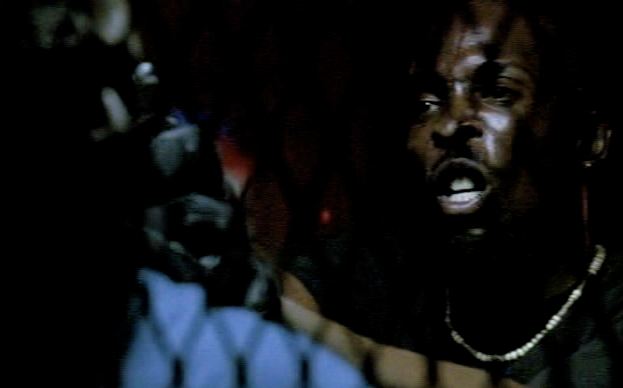 In (or rather out) another window, in a less publicized part of town, Omar is alive, though hurt, both physically and mentally. His crew is mostly dead and his leg mostly broken. I'm not sure how he will actually get to Marlo (no matter how fucking scary it is seeing him crying the whole hour). The thing about Omar is, and has always been, he's an idea as much as he's a dude. I mean where were those voices yelling "Omar's here, Omar's here!" in the middle of night when he blew up one of Marlo's black SUV's? It's like he's got a bunch of child-sirens walking the rooftops above him everywhere he goes. I'm not trying to say the show is losing its usually solid handle on "reality" -- not in the slightest -- just that my assumptions last week, about him being just another fool with a gun, may have been shortsighted. I wasn't raised in the streets, what the hell do I know about certain fellas like Mr. Little? If D. Simon is going to imbue Omar with some sort of transcendental killing ability, I, like Chris, will be aware and await his surge with open eyes.
In (or rather out) another window, in a less publicized part of town, Omar is alive, though hurt, both physically and mentally. His crew is mostly dead and his leg mostly broken. I'm not sure how he will actually get to Marlo (no matter how fucking scary it is seeing him crying the whole hour). The thing about Omar is, and has always been, he's an idea as much as he's a dude. I mean where were those voices yelling "Omar's here, Omar's here!" in the middle of night when he blew up one of Marlo's black SUV's? It's like he's got a bunch of child-sirens walking the rooftops above him everywhere he goes. I'm not trying to say the show is losing its usually solid handle on "reality" -- not in the slightest -- just that my assumptions last week, about him being just another fool with a gun, may have been shortsighted. I wasn't raised in the streets, what the hell do I know about certain fellas like Mr. Little? If D. Simon is going to imbue Omar with some sort of transcendental killing ability, I, like Chris, will be aware and await his surge with open eyes. 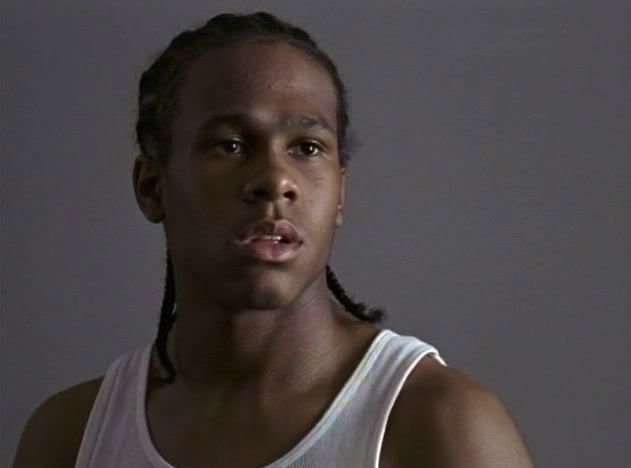 Following the episode, Ryland said, "This is the first week I wish I had On Demand." I agreed. I'll have to wait and see, but the iNet tells me next week will leave us with the same sort of taste for more blood. Ryland (again) called Dickensian "dire," and, if I had to guess, it was those last five minutes (in the Richmond homeless clinic) of Jimmy watching that poor deranged man he's going to use to further his serial killer narrative that had Ryland use such a word. The almost inevitable ending of Jimmy, Freamon (and now Syndor) being investigated themselves is nerve-racking. The pace at which they have moved through the system illegally, from chomping corpses with fake teeth to tapping Marlo's cell (not to mention they're drinking the whole time) hasn't given them the opportunity to take a breath, a step back, and feel the weight they're trying to lift. That trip Jimmy takes, out of Baltimore into Richmond, not so unlike the trip Mike and Dukie took, removed him from this whole fiasco and let him see the hole he is, in fact, rapidly digging. It was an awkward ending, a conflicted feeling, but one that won't last as the final shot has Jimmy re-entering his cruiser to return to Baltimore and his mess.
Following the episode, Ryland said, "This is the first week I wish I had On Demand." I agreed. I'll have to wait and see, but the iNet tells me next week will leave us with the same sort of taste for more blood. Ryland (again) called Dickensian "dire," and, if I had to guess, it was those last five minutes (in the Richmond homeless clinic) of Jimmy watching that poor deranged man he's going to use to further his serial killer narrative that had Ryland use such a word. The almost inevitable ending of Jimmy, Freamon (and now Syndor) being investigated themselves is nerve-racking. The pace at which they have moved through the system illegally, from chomping corpses with fake teeth to tapping Marlo's cell (not to mention they're drinking the whole time) hasn't given them the opportunity to take a breath, a step back, and feel the weight they're trying to lift. That trip Jimmy takes, out of Baltimore into Richmond, not so unlike the trip Mike and Dukie took, removed him from this whole fiasco and let him see the hole he is, in fact, rapidly digging. It was an awkward ending, a conflicted feeling, but one that won't last as the final shot has Jimmy re-entering his cruiser to return to Baltimore and his mess.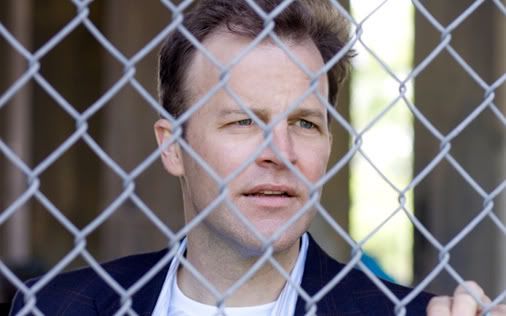 In a strange way, Templeton is becoming almost, just maybe, likable? He is relentless: I mean, Jesus, the faces he makes when listening to a story that isn't quite juicy enough are hilarious. A couple weeks ago I thought the focus of the Sun was going to be Alma, and I was happy about that, but Templeton is good; he has the face of a liar, but kind of a redeeming smile. Somehow I despise him and feel for him simultaneously. This final season has a magnifying glass on the press, obviously, and in the past (most definitely last season), there was an argument made about that certain aspect of the city which was examined. With the schools, the argument was complicated: What does it mean to be a teacher, an educator, in a city (or part of a city) where most of the learning happens in the hours between after school and the next morning before it? How can relationships be formed that allow for these students to find refuge in the classroom and not make them feel like they are doing time? There was a success story in Namond. But it was mostly grim, as we were reminded this week with Randy's cameo. Seeing his thinned-out face sitting atop defined shoulders popping out of a beater, using language that sounded foreign coming out of his mouth was disappointing. Of course, only disappointing in that he was forced into his new role, that even off of the streets, the street mentality prevails. This sort of complicated view of what it means to be young in Baltimore was depressing, yes, but smart and intriguing (just like the actors who represented it). The argument about the press, the Sun specifically, up to this point is not just sort of simple, but somewhat uninteresting. I've come to realize this as each week when I sit down to think about this aspect of the show, it's the actors who are notable. Clark Johnson (Gus), Michelle Paress (Alma) and Tom McCarthy (the above-noted Templeton) are easy to watch, and they are often funny, but what they represent as the press, as reporters, really, is still as muddled as it was in Week One. It would be great if, in the coming weeks, we were given something solid to wrestle with about the role of the small-time paper -- either in general, or in its struggle to stay afloat in the age of picture messages.
In a strange way, Templeton is becoming almost, just maybe, likable? He is relentless: I mean, Jesus, the faces he makes when listening to a story that isn't quite juicy enough are hilarious. A couple weeks ago I thought the focus of the Sun was going to be Alma, and I was happy about that, but Templeton is good; he has the face of a liar, but kind of a redeeming smile. Somehow I despise him and feel for him simultaneously. This final season has a magnifying glass on the press, obviously, and in the past (most definitely last season), there was an argument made about that certain aspect of the city which was examined. With the schools, the argument was complicated: What does it mean to be a teacher, an educator, in a city (or part of a city) where most of the learning happens in the hours between after school and the next morning before it? How can relationships be formed that allow for these students to find refuge in the classroom and not make them feel like they are doing time? There was a success story in Namond. But it was mostly grim, as we were reminded this week with Randy's cameo. Seeing his thinned-out face sitting atop defined shoulders popping out of a beater, using language that sounded foreign coming out of his mouth was disappointing. Of course, only disappointing in that he was forced into his new role, that even off of the streets, the street mentality prevails. This sort of complicated view of what it means to be young in Baltimore was depressing, yes, but smart and intriguing (just like the actors who represented it). The argument about the press, the Sun specifically, up to this point is not just sort of simple, but somewhat uninteresting. I've come to realize this as each week when I sit down to think about this aspect of the show, it's the actors who are notable. Clark Johnson (Gus), Michelle Paress (Alma) and Tom McCarthy (the above-noted Templeton) are easy to watch, and they are often funny, but what they represent as the press, as reporters, really, is still as muddled as it was in Week One. It would be great if, in the coming weeks, we were given something solid to wrestle with about the role of the small-time paper -- either in general, or in its struggle to stay afloat in the age of picture messages.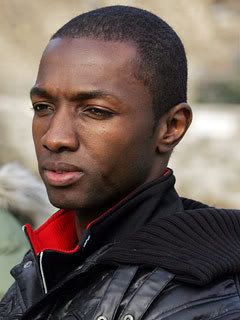 Shit (read: like Clay Davis would say it), picture message upper-hand be damned, Marlo is crazy! I don't even know what he's about anymore, other than he's wearing a figurative crown, I think; now he's in control of the West and East sides, I think; and he's seen Spiderman. The Wire has always done well to prove that nothing lasts on the street except the game. Gangstas die young because power is mishandled constantly, but the drugs keep coming. Marlo has earned some enemies, but, oddly enough, aside from Omar, none seem to have any idea how to do anything about it. I'm of course neglecting Jimmy and Lester, who, in a weird (and unknown to the competitors) race, may beat Omar and whoever else to taking that crown off Omar's dome. Nevertheless, in the (final) co-op meeting, Marlo made it clear that he doesn't do this: he doesn't "meet: Anyone got a problem from here on out, bring it to me, or sit on that shit." Marlo's issue with the meetings, and Joe himself, was always that they weren't "doing" anymore, they just talk, like they lost focus of what is important. Joe and Stringer and a handful of others in the meetings were, in a sense, using drugs to clean up their act, to buy real estate or something. Marlo doesn't see the world that way, I think. Being the king of the street is his ticket to being the king of streets, only. He works hard at it and when he's killed (or arrested), for he will eventually be killed (or arrested), Daniels won't find a paper a trail.
Shit (read: like Clay Davis would say it), picture message upper-hand be damned, Marlo is crazy! I don't even know what he's about anymore, other than he's wearing a figurative crown, I think; now he's in control of the West and East sides, I think; and he's seen Spiderman. The Wire has always done well to prove that nothing lasts on the street except the game. Gangstas die young because power is mishandled constantly, but the drugs keep coming. Marlo has earned some enemies, but, oddly enough, aside from Omar, none seem to have any idea how to do anything about it. I'm of course neglecting Jimmy and Lester, who, in a weird (and unknown to the competitors) race, may beat Omar and whoever else to taking that crown off Omar's dome. Nevertheless, in the (final) co-op meeting, Marlo made it clear that he doesn't do this: he doesn't "meet: Anyone got a problem from here on out, bring it to me, or sit on that shit." Marlo's issue with the meetings, and Joe himself, was always that they weren't "doing" anymore, they just talk, like they lost focus of what is important. Joe and Stringer and a handful of others in the meetings were, in a sense, using drugs to clean up their act, to buy real estate or something. Marlo doesn't see the world that way, I think. Being the king of the street is his ticket to being the king of streets, only. He works hard at it and when he's killed (or arrested), for he will eventually be killed (or arrested), Daniels won't find a paper a trail.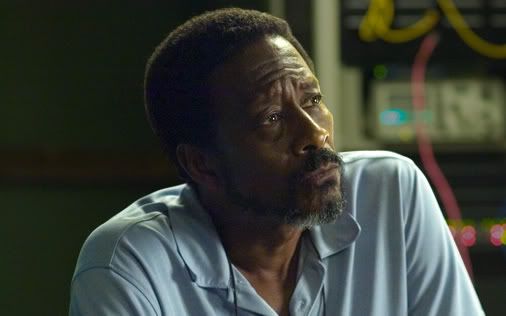
"If you have a problem with this, I understand completely." -- Freamon




No comments:
Post a Comment